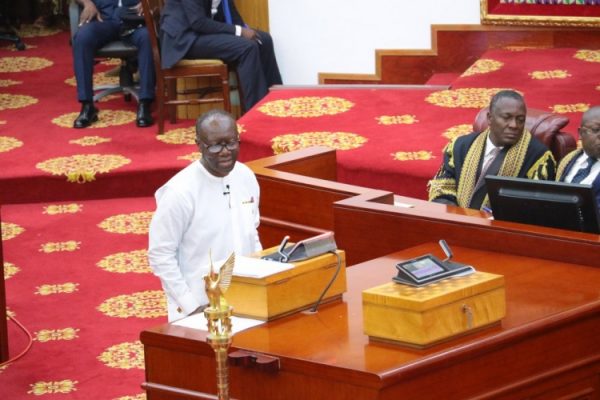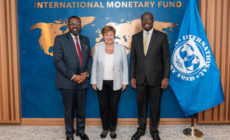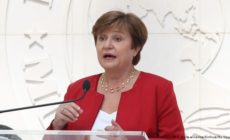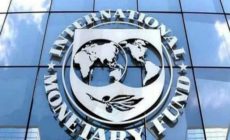IMF names Ghana as one of 17 countries with fastest growing economies
- Posted on
- Comment
 The International Monetary Fund (IMF) has named Ghana as one of 17 countries whose economies grew rapidly in 2017.
The International Monetary Fund (IMF) has named Ghana as one of 17 countries whose economies grew rapidly in 2017.
Ghana emerged 16th on the list of countries with 6.3 percent growth followed by Turkmenistan, which recorded growth of 6.2 percent.
Libya was first on the list with 16% growth; followed by Ethiopia with 8.5%; India – 7.4%; Rwanda – 7.2%; Bhutan – 7.1%, Bangladesh – 7%; Senegal – 7%; Cambodia – 6.9%; Myanmar – 6.9%; Laos – 6.8%; Philippines – 6.7%; Djibouti – 6.7%; Vietnam – 6.7%; China – 6.6%; and Tanzania – 6.4%.
According to the IMF, Ghana’s performance under the extended credit facility (ECF) programme also improved in 2017 while macroeconomic conditions strengthened considerably.
It noted also that growth increased on the back of expanded oil production while inflation declined.
The fiscal deficit was significantly reduced, leading to a primary surplus for the first time in 15 years.
Ghana’s exchange rate regained stability; with her external position improving with a large reserve build-up.
“Challenges remain, though, as a still-elevated (albeit declining) debt burden and the economy’s exposure to risks limit policy space; and progress in meeting structural benchmarks remains mixed.”
The IMF recommended that fiscal adjustment was needed to lock in a declining debt dynamic, supported by increased domestic revenues.
“The monetary policy framework needs to remain anchored to delivering declining inflation, with steps to underpin the credibility of the inflation targeting framework. Long-term financial stability requires resilient and well-managed institutions supported by a robust financial safety net.
“Ongoing initiatives to strengthen the financial sector are welcome and need to proceed steadfastly to create an environment supportive of credit growth and financial inclusion.”
The IMF revealed that wide-ranging structural reforms to promote transparency and accountability and address inefficiencies in the economy were crucial to creating inclusive growth.
It said government was committed to bringing the Fund-supported programme to a successful completion in the coming year via continued policy adjustment and reform, including sustained fiscal discipline, implementation of financial stability measures and further structural reforms.
By Samuel Boadi










 (Selorm) |
(Selorm) |  (Nana Kwesi)
(Nana Kwesi)